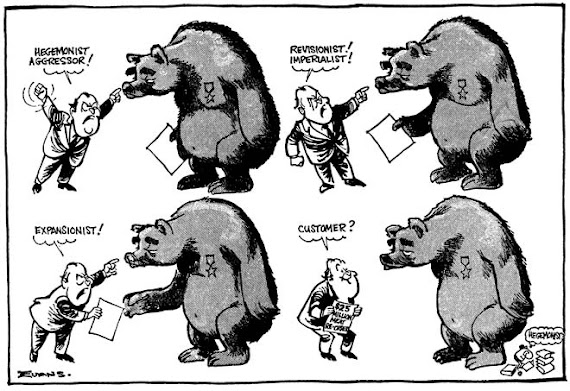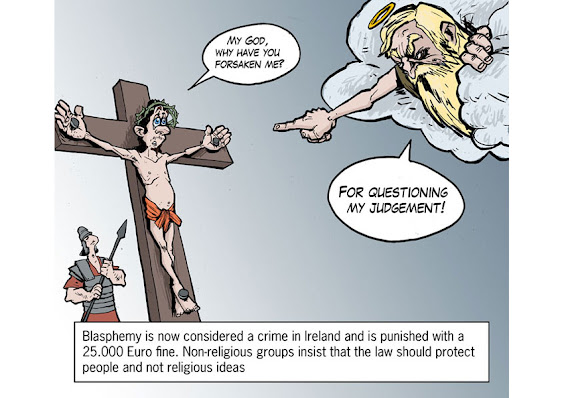 |
| This cartoon was published by John Collins to show the stark ideological differences between the two superpowers. |
Mr. Putin’s revisionist and absurd assertion that Ukraine was “entirely created by Russia” and effectively robbed from the Russian empire is fully in keeping with his warped worldview. Most disturbing to me: It was his attempt to establish the pretext for a full-scale invasion.
Should he invade, it will be a historic error.
In the 20-odd years since we met, Mr. Putin has charted his course by ditching democratic development for Stalin’s playbook. He has collected political and economic power for himself — co-opting or crushing potential competition — while pushing to re-establish a sphere of Russian dominance through parts of the former Soviet Union. Like other authoritarians, he equates his own well-being with that of the nation and opposition with treason. He is sure that Americans mirror both his cynicism and his lust for power and that in a world where everyone lies, he is under no obligation to tell the truth. Because he believes that the United States dominates its own region by force, he thinks Russia has the same right.
Mr. Putin has for years sought to burnish his country’s international reputation, expand Russia’s military and economic might, weaken NATO and divide Europe (while driving a wedge between it and the United States). Ukraine features in all of that.Instead of paving Russia’s path to greatness, invading Ukraine would ensure Mr. Putin’s infamy by leaving his country diplomatically isolated, economically crippled and strategically vulnerable in the face of a stronger, more united Western alliance.
.......................................................................................................................................................................
Meanwhile, the great dragon of the East watches with interest. It's wide-awake and has been flexing its wings towards the Pacific.
 |
| Great Wall |

